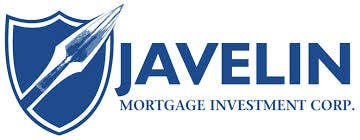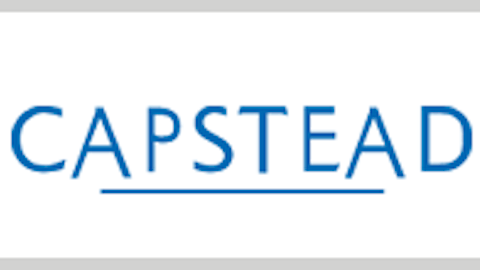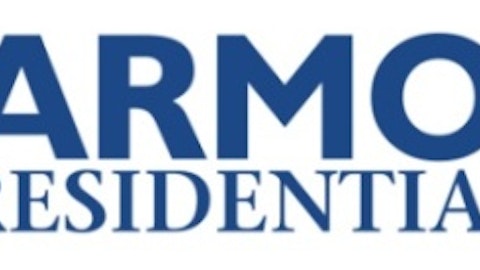Hybrid mortgage REITs with large exposures in lower-coupon long-duration fixed-rate Agency residential MBS act more like Agency-only mREITs when it comes to protecting book values. Javelin Mortgage Investment Corp (NYSE:JMI) is one such hybrid mREIT. This article attempts to explain the impact of large exposure in the aforementioned security by Javelin and compare it with its peers.
Expect even higher book value erosion in the future
Javelin Mortgage Investment Corp (NYSE:JMI) is a small-cap mortgage REIT that owns a hybrid portfolio of securities including Agency and non-Agency MBS. During the second quarter, the company’s assets swelled 63% to $2 billion. During the quarter, the company increased the proportion of non-Agency MBS by 75%. So, at the end of the quarter, Agency securities were 87% of total equity, while the remainder was non-Agency. Javelin is a sister concern of the largely followed Agency-only mREIT, ARMOUR Residential REIT, Inc. (NYSE:ARR).
Yesterday, Javelin Mortgage Investment Corp (NYSE:JMI) reported another set of disappointing results when it disclosed its performance for the most recent quarter. Both profits and book value remained weaker than expected.

Book value preservation, another critically important factor for mREIT managements these days, remained a significant failure at Javelin Mortgage Investment Corp (NYSE:JMI). Despite being classified as a hybrid mREIT, the company reported an 18% decline in its book value over the first quarter. This was even higher than forecasted by Credit Suisse Group AG (ADR) (NYSE:CS) analysts. Much of the decline was a result of a greater-than-expected plunge in the prices of lower coupon 30-year MBS, which are considered to have the most sensitivity to interest rates.
The future is even darker as far as the company’s book value erosion is concerned. Over the prior quarter, the management increased its book value sensitivity. Now, you should expect book value declines of 3.4% and 1.68% if rates go up 100 basis points and 50 basis points, respectively. In the first quarter, book value was expected to plunge 1.31% and 0.47% if rates went up 100 basis points and 50 basis points.
Peer analysis
ARMOUR Residential REIT, Inc. (NYSE:ARR) is a largely followed Agency-only mREIT with large exposure to the lower coupon 30-year fixed rate Agency residential MBS. At the end of the second quarter, the fixed-rate Agency securities were 94% of the entire portfolio, while the rest were adjustable-rate securities. Since ARMOUR has a large exposure to the troubled long-duration security, it reported a book value decline of 19%, while its spread expanded 4 basis points.
The future for ARMOUR Residential REIT, Inc. (NYSE:ARR)’s investors does not look positive. During the quarter, the company increased its book value’s interest rate sensitivity due to large changes in interest rates. Now, you can expect ARMOUR’s book value to decline 2.56% if rates go up 100 basis points. This was compared to a 2.42% decline at the end of the first quarter for a similar move in interest rates.
American Capital Agency Corp. (NASDAQ:AGNC) is another large-cap Agency-only mREIT that invests exclusively in fixed rate Agency MBS. Before, the company had a large chunk of the troubled 30-year MBS, but during the second quarter, the company’s management decided to get rid of some of this exposure. Also, during the quarter, the company tilted its portfolio towards the 15-year fixed-rate MBS as the 15-year MBS became nearly 42% of the portfolio, compared to 31% at the end of the first quarter. As a result, American Capital was able to cap its book value decline at 11.8%, while the net interest rate spread was off 12 basis points over the prior quarter.
Going forward, the company’s duration gap will increase by only 0.1 years if rates go up by either 100 basis points or 200 basis points. This is compared to 1.6 year and 2.2 year duration gap extensions at the end of the first quarter. Remember, a higher duration gap exposes the book value to changes in interest rates. So, I believe the management will be able to further cap book value erosion in the third quarter.
Conclusion
You have seen that despite being classified as a hybrid mREIT, Javelin Mortgage Investment Corp (NYSE:JMI) reported a significant book value decline, even higher than American Capital Agency Corp. (NASDAQ:AGNC)’s book value decline. Javelin’s poor book value protection can be attributed to the nature and design of its investment portfolio. Future book value protection is also not a guaranteed at Javelin. So, I recommend investors stay away from Javelin as the immediate risk of book value erosion overshadows the long-term benefit of higher earnings potential.
Adnan Khan has no position in any stocks mentioned. The Motley Fool has no position in any of the stocks mentioned.
The article One Hybrid mREIT I Would Avoid originally appeared on Fool.com.
Copyright © 1995 – 2013 The Motley Fool, LLC. All rights reserved. The Motley Fool has a disclosure policy.





